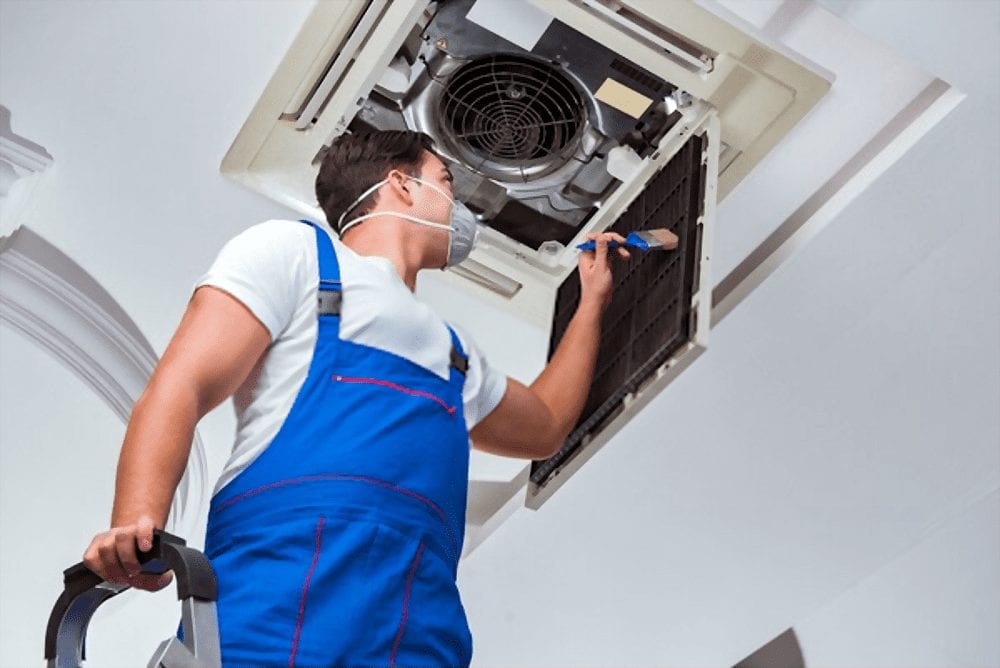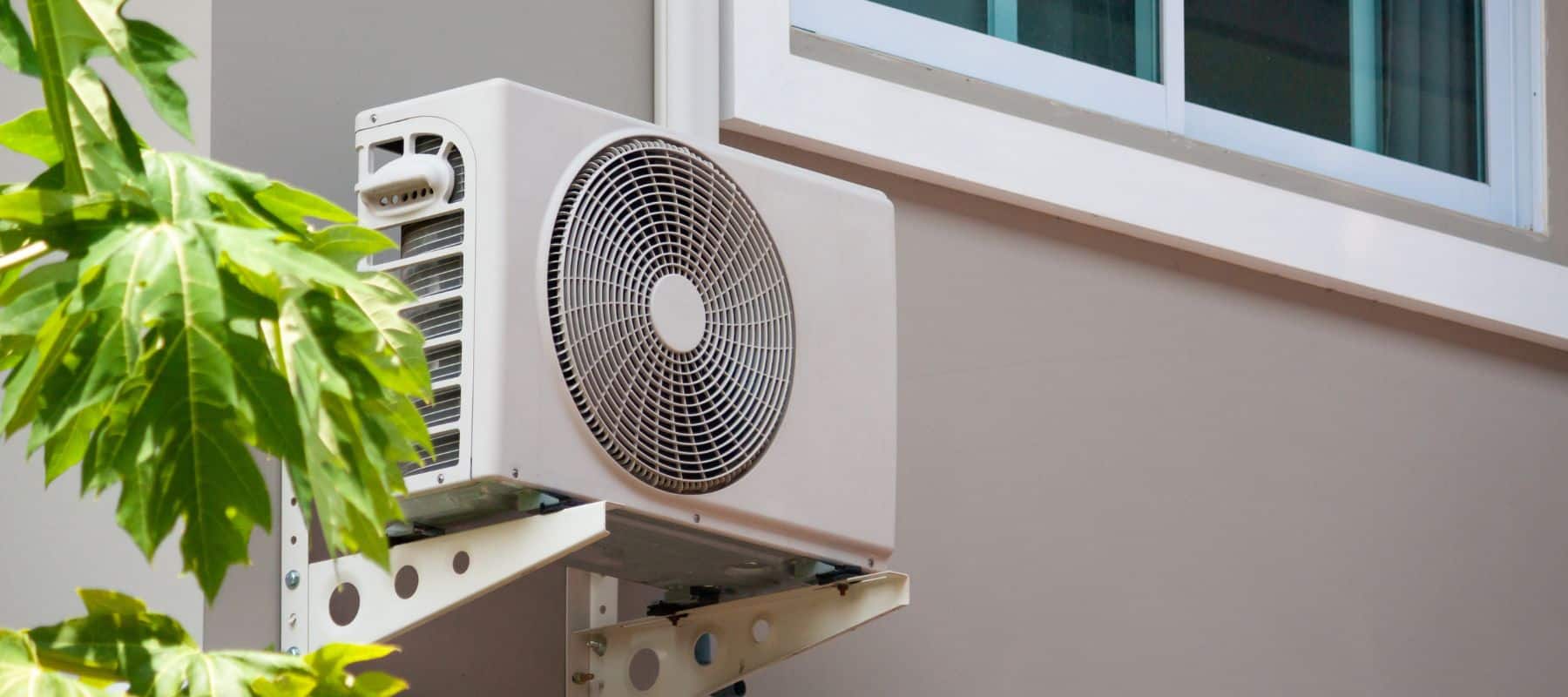Did you recognize that roughly 75% of home owners experience cooling noise concerns at some time? When your air conditioner starts making unusual sounds, it can be quite disruptive to your tranquility and comfort.
From rattling and buzzing to squealing and banging, these sounds can indicate underlying problems that require interest. Determining the resource of the noise is essential for efficient repairs and ensuring your a/c unit runs successfully.

So, if you're tired of bearing with bothersome a/c noises interrupting your peace, there are remedies available.
Secret Takeaways

- Routine maintenance is necessary to attend to typical air conditioner sound sources like ductwork concerns and faulty motors.
- Address shaking noises by checking for loose parts, keeping fan electric motors, and including vibration seclusion pads.
- Screeching and banging sounds can be settled by inspecting belts, fan blades, and compressor coils for concerns.
- Fixing AC sound problems by carrying out aesthetic inspections, executing soundproofing techniques, and troubleshooting for obstructions.
Common Cooling Sound Sources
If your air conditioning system is making unusual noises, it could be because of among numerous common resources.
One regular culprit is issues with the ductwork. In time, air ducts can develop leakages, loosened connections, or even clogs. These issues can create air to flow erratically, resulting in whistling or rattling noises. An extensive ductwork evaluation by a specialist can help recognize and rectify these concerns, restoring your system's smooth operation.
One more common resource of sound in cooling systems is a defective motor. The motor is a critical component that drives the fans and various other relocating components within the system. If the motor is broken or harmed, it can create grinding, squealing, or clunking sounds. In such instances, electric motor replacement may be essential to eliminate the resource of the disturbance. Normal upkeep and prompt motor substitute when required can help keep your a/c system running silently and efficiently.
Diagnosing Rattling and Buzzing Seems
To attend to rattling and buzzing sounds in your cooling system, beginning by checking the elements that could be causing these noises, such as loose components or damaged parts. Vibration isolation is type in dealing with these issues. Check for any type of loosened screws, screws, or panels that might be shaking versus each other during operation. Tightening up these can commonly alleviate the rattling noises.
Additionally, inspect the follower electric motor for any indicators of deterioration. Regular follower motor maintenance, such as lubrication and cleansing, can help reduce humming audios brought on by rubbing or breakdown.
If the rattling persists after examining and tightening components, take into consideration adding vibration isolation pads or installs to absorb the excess resonances. These pads act as a buffer between the shaking components, lowering the noise. Remember that dealing with these noises quickly can stop more damage to your a/c system and ensure its peak performance.
Addressing Screeching and Banging Sounds
When resolving screeching and banging noises in your air conditioning system, beginning by identifying the source of the sounds with a comprehensive evaluation of the unit's components. Examine the belt tension in addition to the electric motor bearings, as loose belts or damaged bearings can cause squealing noises. Evaluate the fan blade for any kind of obstructions or damages that could cause banging sounds when the follower turns. In addition, take a look at the compressor coil for any type of particles or concerns that might be creating the sounds.
To deal with screeching noises related to belt tension, readjust the tension following the maker's standards to make sure it's within the advised variety. If the electric motor bearings are the perpetrator, consider oiling them preferably; or else, they may need to be changed. For banging sounds brought on by follower blade issues, repair or change the harmed blades promptly. When it involves the compressor coil, cleansing it thoroughly can commonly deal with any kind of noise-related issues. By addressing these prospective resources of squealing and banging sounds, you can restore your a/c system to its finest functioning state.
Tips for Fixing Cooling Noise
When confronted with cooling sound issues, start by carrying out a visual examination of the unit's components for any type of noticeable signs of damage or wear. Search for loosened components, damaged belts, or particles that may be causing the sound. If you notice any issues, ensure to tighten loose elements, change damaged parts, and clean any type of debris to see if the noise improves.
To address cooling sound issues, take into consideration soundproofing methods to decrease the sound transmission from the device. Insulating the wall surfaces around the unit, mounting soundproofing panels, or positioning rubber pads underneath the system can aid wet the noise effectively.
Normal maintenance is key to stop a/c noise. Be specific that the unit is clean, oiled, and well-maintained to reduce possible concerns. Fixing actions like checking the follower blades and electric motor for any kind of blockages can also help identify and take care of noise problems. For minor issues, do it yourself options such as tightening screws or adjusting parts might fix the sound without the demand for specialist help.

Guaranteeing Efficient AC Procedure
Guarantee your air conditioning operates efficiently by scheduling normal upkeep checks and maintaining the unit clean and well-lubricated. Ensuring your a/c system works at its finest not only reduces noise yet likewise reduces energy intake. To accomplish this, carry out sound reduction techniques such as positioning resonance pads under the unit to wet sound transmission and making certain all parts are securely tightened. In addition, clean or change air filters frequently to prevent air flow obstructions that can strain the system and boost noise levels.
Power usage optimization is important for effective air conditioner operation. Set your thermostat to a suitable temperature level to avoid overworking the system. Use ceiling fans to help distribute awesome air more effectively, permitting you to elevate the thermostat somewhat without sacrificing convenience. Take into consideration setting up a programmable thermostat to change temperature levels instantly when you're away. By following these techniques, you can keep a comfy interior environment while minimizing power prices and sound levels.
Frequently Asked Concerns

Can A/c Noise Degrees Affect the High Quality of Indoor Air?
High a/c noise levels can impact indoor air top quality by adding to noise pollution, which can affect your health and wellness.
To address this, think about soundproofing options to lower the noise from your air conditioning system.
Is There a Relationship Between Air Conditioning Noise and Power Performance?
When it pertains to cooling sound and energy performance, there's without a doubt a relationship.
The loud sounds produced by your air conditioner system can indicate inadequacies that result in boosted power consumption.
By resolving and reducing the environmental pollution, you can improve the general effectiveness of your system.
Exactly How Can I Minimize Cooling Sound Without Compromising the Air Conditioning Performance?
To minimize cooling noise without endangering cooling efficiency, think about soundproofing solutions like acoustic insulation.
You can optimize performance by adjusting the system for efficiency while wetting unwanted audios. https://deptfordacinstallation.co.uk
Attempt ensuring all elements are properly set up and maintained, and look for loosened parts that could be creating excessive sound.
Are There Any Type Of Certain Laws or Guidelines Relating To Appropriate Sound Degrees for A/c Units?
When it pertains to air conditioning units, there are specific regulations and guidelines in place to assure conformity with appropriate sound levels. These standards assist sustain a comfy environment without triggering disturbances.
Regulations concerning noise degrees for air conditioning units differ depending upon location, yet typically focus on decreasing sound discharges to a degree that does not interrupt daily tasks. It is essential to be conscious of these guidelines to ensure your system meets the essential standards.
What Are Some Long-Term Upkeep Tips to avoid Air Conditioning Noise Issues in the Future?
To prevent air conditioning noise issues long-term, see to it you stick to regular upkeep. Clean or change filters, look for loose parts, and maintain the device clean.
Think about soundproofing techniques like adding insulation around the unit. By remaining on top of upkeep and taking actions to lower noise, you can take pleasure in a quieter and more efficient air conditioning system in the future.
Conclusion
Now that you have actually identified the common sources of air conditioning noise and learned how to detect and fix them, you can delight in a quieter and much more reliable air conditioning system.
Keep in mind to frequently check for any uncommon sounds and resolve them promptly to avoid any type of additional damage.
By looking after your air conditioning system, you can assure it operates efficiently and properly for years to find.
